In 2012, I read 27 books. Here are numbers 11-18 in the order most to least inspiration, pleasure, ideas and word-love derived from.
(11) Are You My Mother? (2012) – Alison Bechdel
I don’t think this should be read without first reading Bechdel’s other graphic novel/memoir, Fun Home. I would call this a companion read. She frequently states that it’s a book about her mother, but it’s really a book about her relationship with her 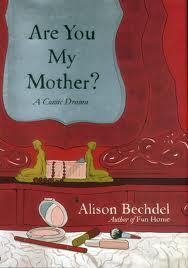 mother and coming to terms with her feelings about her mother in psychotherapy. I could see how its “meta-book” quality (she talks about the process of writing the book in the book) and its focus on her therapy (many pages are panels of conversations with her therapists) would not appeal to everyone, but I felt very open to it & interested in it. She touches on a lot of my own interests – the theories of Dinald Winicott, the life of Virginia Woolf, the psychoanalytic process. Bechdel’s persona, a curious, creative, insecure, unrelentingly honest artist and memoirist is also highly sympathetic.
mother and coming to terms with her feelings about her mother in psychotherapy. I could see how its “meta-book” quality (she talks about the process of writing the book in the book) and its focus on her therapy (many pages are panels of conversations with her therapists) would not appeal to everyone, but I felt very open to it & interested in it. She touches on a lot of my own interests – the theories of Dinald Winicott, the life of Virginia Woolf, the psychoanalytic process. Bechdel’s persona, a curious, creative, insecure, unrelentingly honest artist and memoirist is also highly sympathetic.
(12) and (13) The Diary of Anaïs Nin, Volume 5, 1947-1955 (1974)
The Diary of Anaïs Nin, Volume 6, 1955-1966 (1976)
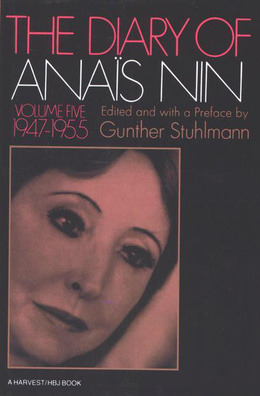
I worked my way through Volumes 1-6 of the Diary of Anais Nin this year, which I found to be lyrical, compelling, idea-inspiring. Like friendship. The later volumes aren’t as full of events, emotional upheavals and insights. Volume 6, for example, is padded out with her correspondence with writers in prison, which I started to skim through.
(14) Portnoy’s Complaint (1969) – Philip Roth

Roth was quite brilliant for choosing the psychotherapeutic rant as his form – it allowsfor unlimited quantities of narcissism and the most intimate, embarrassing & shockingly honest admissions. As a reader, you can’t say you didn’t know what you were in for. I liked that Portnoy had some insight, being in his 30s, I was afraid it would all be from the blind-and-horny-young-man point of view. Rich, rhythmic language, like a meaty stew. Daring use of exclamation marks. I was needing to read something risk-taking & this hit the spot.
The funniest part to me was his description of his shiksa girlfriend’s Midwest home, Portnoy’s surprise & delight at the normalcy of it. Again, my only quibble was with the ending – attempted rape of a woman who looks like his mother, in Israel, was not only super heavy-handed in the psychoanalytic sense, but also fully disconnected me from Portnoy, whom I had sort of gotten to like for his honesty & lustiness. I left the book with a feeling of distaste, violence.
(15) Leaving the Atocha Station (2011) – Ben Lerner
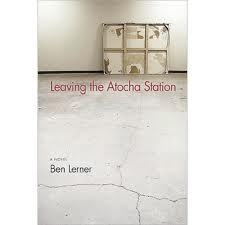 Young American poet in Madrid. Some say this is thinly disguised autobiography – I found myself actually not being that curious either way, which is not always the case. I really liked the internal quality of the novel, the absolute subjectivity. You get the feeling that the people the narrator interacts with actually like him better and think he’s smarter, more interesting & socially adjusted than he gives himself credit for (doesn’t help that he’s high & paranoid most of the time). I also loved the way he described the fog of living in a country where you halfway speak the language, how you have multiple interpretations for what someone could be saying to you, and how all of those versions might be wrong. My only quibble was with the ending, it’s all tied up into a neat bow, not sure what we as readers are intended to be left with. (I passed it along to a friend, not a keeper on the shelf, but worth passing along.)
Young American poet in Madrid. Some say this is thinly disguised autobiography – I found myself actually not being that curious either way, which is not always the case. I really liked the internal quality of the novel, the absolute subjectivity. You get the feeling that the people the narrator interacts with actually like him better and think he’s smarter, more interesting & socially adjusted than he gives himself credit for (doesn’t help that he’s high & paranoid most of the time). I also loved the way he described the fog of living in a country where you halfway speak the language, how you have multiple interpretations for what someone could be saying to you, and how all of those versions might be wrong. My only quibble was with the ending, it’s all tied up into a neat bow, not sure what we as readers are intended to be left with. (I passed it along to a friend, not a keeper on the shelf, but worth passing along.)
(16) How to Be a Woman (2012) – Caitlin Moran
Extremely funny, bawdy, straight-talking in a most English way. T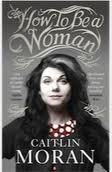 horoughly enjoyable if you disregard her lofty claims for the book. Namely, that it’s a sorely needed feminist treatise on pop culture & the everyday conundrums of femininity (such as what to wear). Especially if Lady Gaga is the absolute height of feminist achievement (as she claims, ugh). There’s in fact extensive writing & thinking on this stuff all over the internet (though maybe not written by someone of her generation).
horoughly enjoyable if you disregard her lofty claims for the book. Namely, that it’s a sorely needed feminist treatise on pop culture & the everyday conundrums of femininity (such as what to wear). Especially if Lady Gaga is the absolute height of feminist achievement (as she claims, ugh). There’s in fact extensive writing & thinking on this stuff all over the internet (though maybe not written by someone of her generation).
However, she is quite lovable. The chapter on breasts and what to call them, for example, is hilarious. I am also 100% with her thinking on the wedding-industrial complex.
(17) Tete-a-Tete (2005)- Hazel Rowley
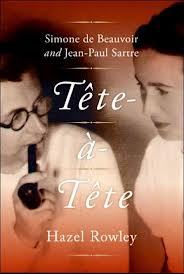 Fascinating account of the lifelong relationship between Simone de Beauvoir & Jean-Paul Sartre, spanning their complicated private lives, literary works and the great wave of the 20th centruy. This was my second read, otherwise would be higher on the list – my first read transformed my perspective for a while.
Fascinating account of the lifelong relationship between Simone de Beauvoir & Jean-Paul Sartre, spanning their complicated private lives, literary works and the great wave of the 20th centruy. This was my second read, otherwise would be higher on the list – my first read transformed my perspective for a while.
18) Freedom (2011) – Jonathan Franzen
Positive stuff
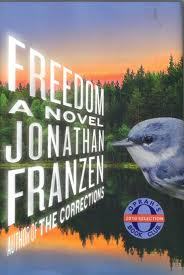 -Absolutely absorbing. He plants information masterfully, weaves the story in a way that keeps you reading (from the first sentence you know there’s a downfall to come). Franzen sticks to his mantra of being a friend to the reader – a feat to create a literary page-turner.
-Absolutely absorbing. He plants information masterfully, weaves the story in a way that keeps you reading (from the first sentence you know there’s a downfall to come). Franzen sticks to his mantra of being a friend to the reader – a feat to create a literary page-turner.
-Ambitious in its reach. A successful, rich depiction of the present time in the USA and also a family saga. I was wowed by the scope of subjects he covers & the level of detail.
Negative stuff (spoiler alert)
-It unravels in the last 150 pages or so & that put me off the book as a whole. Endings are so hard!!
First, because it becomes completely ranty & you start to feel the voice author grousing through his characters (see a 3-page dialogue involving a fight between neighbors about keeping cats inside in order to spare birds in the wild). As much as I am sympathetic to urgent environmental matters it started to feel like a lecture & pulled me away from the narrative. Second, the characters and scenarios become too much to swallow: a college kid buying army supplies in Paraguay with minimal Spanish for Iraqi contractors; a young woman (Connie character) whose only ambition from age 12 is to be with this guy – no more depth to her than that (think how much young women change between ages 12-23); the death of Lalitha seemed like a conventional plot twist, etc.
-Walnut Surprise is a terrible name for a blues-country, dark-horse hit band.
-While I appreciate the gesture of creating a happy ending for all (including all of Patty’s dysfunctional family), that again felt a bit forced .
-As with The Corrections, his overall vision of the human heart, human motivations as revealed in the novel made me uncomfortable. A major theme was competition, that competitiveness drives every relationship. It was interesting to look at the world this way while I read the book (including assessing my own relationships), but ultimately it’s not a reduction I want to live by.
